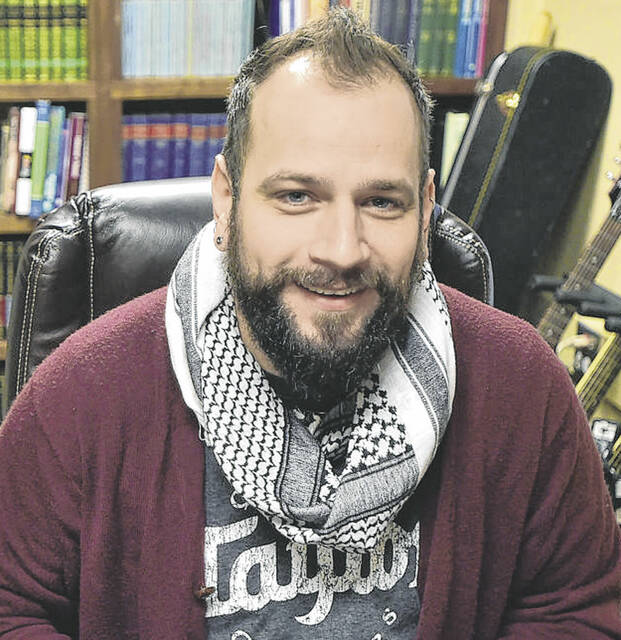
It is an unavoidable fact of life. We will all, at various times and ways, be mistreated and misused by others.
As a pastor, a good portion of my week is spent trying to help people navigate the hurt and heartache in their lives resulting from these realities. There is a shocking shortage of civility, compassion and grace in our communities and our culture at large these days. Division and discord have had their way in recent years, and I fear they continue to be on the rise.
Consequently, we live in a world dominated by the twin demons of “Yeah, but they” and “What about me?” I have begun to believe a portion of the problem lies not in what has been or will be done to us but the attitudes we have adopted in response and in anticipation of the issues. We can’t always control what’s done to us, but we need to find productive ways to respond. Unfortunately, we seem to be defaulting to a victim mentality far too often.
It didn’t take humanity long to learn to play the victim. Just a few chapters into the story of the world in the Bible, the first people learn to point fingers and place blame. God comes into the garden and finds Adam and Eve hiding. God confronts them, asking what they have done. Adam responds first, immediately placing blame on Eve. We might paraphrase Adam’s response like this: “It wasn’t my fault God. You put her here, and she did this to me.”
When God turns to Eve, she turns on the serpent, saying, “The serpent deceived me and I ate.” We might rephrase it as, “The devil made me do it.”
Both Adam and Eve play the victim. Rather than addressing the issue at hand in a productive way, they act helpless, focusing on what was done to them. Interestingly, Adam doubles down, not just blaming Eve for what has transpired but also God.
With all of the learning and growth through the ages, one would think we would have matured beyond these practices by now, but we haven’t. In the face of division, hurt and failure, we often choose to take the posture of a passive participant and allow what has been done to us to determine our behavior.
We take the posture of a victim as a means of self-defense. We become hyper-aware, or so we think, of the actions, attitudes and intentions of others and quickly divert attention to them in remove it from us. We believe ourselves the victim and “they,” whoever that might be, are the real problem. That may very well be true at times, but does settling into this mindset help us make things better and move forward in productive ways?
If anyone in history had the right to claim the role of victim, it was Jesus. He was falsely accused of crimes he didn’t commit, brutally beaten as punishment he didn’t deserve and violently murdered by those he came to save.
But still, they were the object of his compassionate grace rather than his righteous wrath. Rather than taking the posture of a helpless victim and pointing his finger at others, Jesus took the posture of a servant, sacrificially giving of himself in order to make way for reconciliation. And unlike the rest of us, Jesus carried no blame for creating the issues he was seeking to remedy.
Jesus never played the victim. Instead, Jesus demonstrated power by offering himself in sacrificial service to make the world better. His life wasn’t taken from him. He gave it freely as a gift. He humbly endured unspeakable wrong that he might bring about the ultimate right.
This is the mindset we are to adopt as followers of Jesus. We are to leave behind the victim mentality demonstrated by Adam and Eve and instead let the mentality of Christ, that of sacrificial service, take its place. We can’t both claim the weakness of a victim and lead to a better world through the power of sacrificial grace. They are mutually exclusive. The one will cancel the other.
When we offer our bodies as living sacrifices, we simultaneously relinquish our power and take up the might of Christ. As counterintuitive as it may seem, it is when we choose to humble ourselves, taking the hurt while responding with compassionate grace, that we are able to lead ourselves and others away from heartache and division and into restoration and right relationship.
It’s one of the great ironies of the gospel: When we surrender our power, we are able to stand with strength. We no longer play the victim. Instead, we become sacrificial servants in the mold of Jesus.
The unfortunate truth is it’s much easier to play the victim. That’s why we do it. When we settle for being the victim, we lament that something has been done to us, which requires us to do nothing.
The alternative is much more difficult. Transitioning into sacrificial service requires us to take action to make the situation better. It requires us to refuse to lay down or stay down but to stand up and push ahead. That’s what Jesus did when he went to the cross. It’s easier to sit on our hands and lament the state of our world, our community or our own lives than to get our hands dirty and do something to make a difference.
Stepping out and sacrificing of ourselves is difficult, but it’s the way of Jesus. It’s the way of life.
The Rev. Jeremy Myers is the lead pastor of First Baptist Church in Seymour. Read his blog at jeremysmyers.com. Send comments to [email protected].
